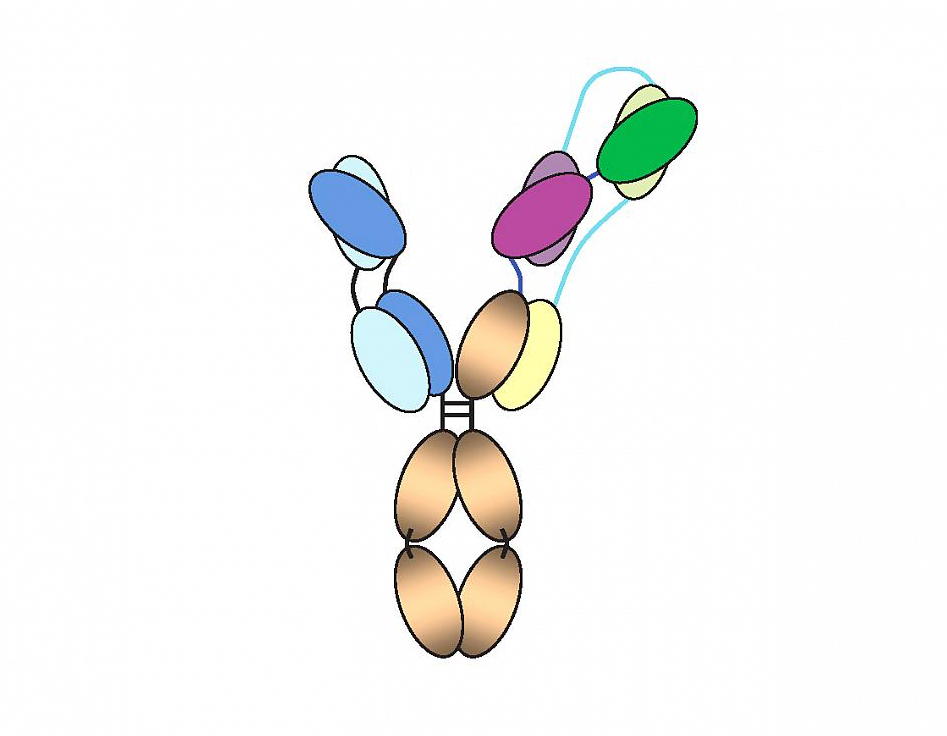Three-in-one antibody protects monkeys from HIV-like virus
NIH and Sanofi scientists prepare to test antibody in people.
A three-pronged antibody made in the laboratory protected monkeys from infection with two strains of SHIV, a monkey form of HIV, better than individual natural antibodies from which the engineered antibody is derived, researchers report in Science today.
The three-pronged antibody, created by investigators from the National Institutes of Health (NIH) and the Paris-based pharmaceutical company Sanofi, also stopped a greater number of HIV strains from infecting cells in the laboratory more potently than natural, single antibodies. This new broadly neutralizing antibody binds to three different critical sites on HIV.
Plans are under way to conduct early-phase clinical trials of the “trispecific” antibody in healthy people and in people living with HIV in the hope that it could eventually be used for long-acting HIV prevention and treatment. By binding to three different sites on the virus, the new antibody should be harder for HIV to dodge than natural, single antibodies.

Diagram of the “three-in-one” HIV antibody. The blue, purple and green segments each bind to a different critical site on the virus.
This page was last updated on Friday, January 21, 2022